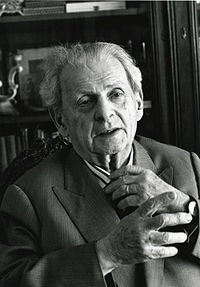
When Moses approached God on the mountain, “God called unto him out of the midst of the bush, and said … ‘Draw not nigh hither: put off thy shoes from off thy feet, for the place whereon thou standest is holy ground'” (Exodus 3:4-5). The place which Moses was entering had been sanctified, and made into a holy place. As such, Moses was to perform customs that signified that he acknowledged the sacredness of that location (removing his shoes). That mountain side was where Moses would reverentially approach the Creator Himself, and was therefore separated in purpose, meaning, and significance from the surrounding environment.
I have my own sacred space where I go to approach God for special blessings and important questions. It is on a mountainside, away from traffic and human activity, and it is a great spot to read, ponder, and otherwise peacefully enjoy nature. I visit that spot often, but even when I’m not there to commune with God, I’ve made it a point to never engage in irreverent activities while in the area. Because of spiritual experiences that I’ve had there, the location has been sanctified in such a way that I feel as if I would desecrate it if I went there and read Harry Potter or the Far Side. In that way, I instinctively perform certain personal customs to acknowledge that the location is sacred to me. As a result, whenever I visit that spot, I can almost instantly feel the presence of the Spirit. Continue reading

 Most of us have experienced miracles in our lives. I would like to share with you one of the greatest miracles I’ve experienced during my life. My intent is to witness that God is real, and that He does hear our lonely prayers in the moments when we feel the most isolated. Many of us have experienced loneliness and social isolation, and for different reasons. Some of us may have lost our parents. Some of us may have experienced physical abnormalities. Some of us may experience same-gender attraction. Each of these experiences may potentially alienate us from those whom we care about. And often, it may not seem as if any of our prayers and pleas for companionship are answered.
Most of us have experienced miracles in our lives. I would like to share with you one of the greatest miracles I’ve experienced during my life. My intent is to witness that God is real, and that He does hear our lonely prayers in the moments when we feel the most isolated. Many of us have experienced loneliness and social isolation, and for different reasons. Some of us may have lost our parents. Some of us may have experienced physical abnormalities. Some of us may experience same-gender attraction. Each of these experiences may potentially alienate us from those whom we care about. And often, it may not seem as if any of our prayers and pleas for companionship are answered.

